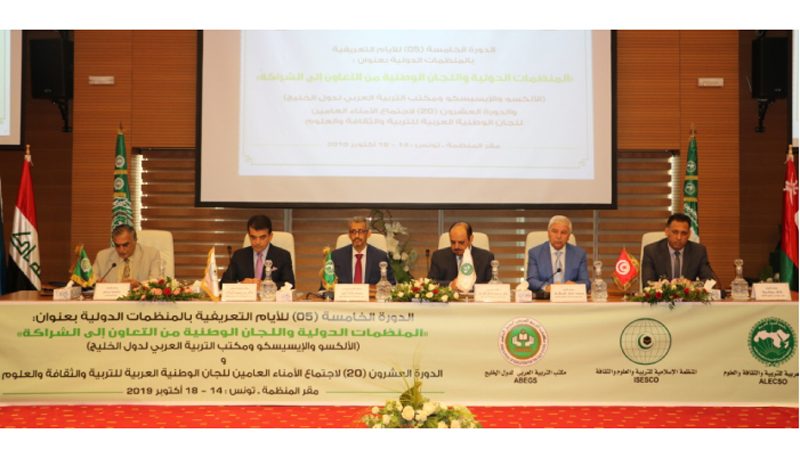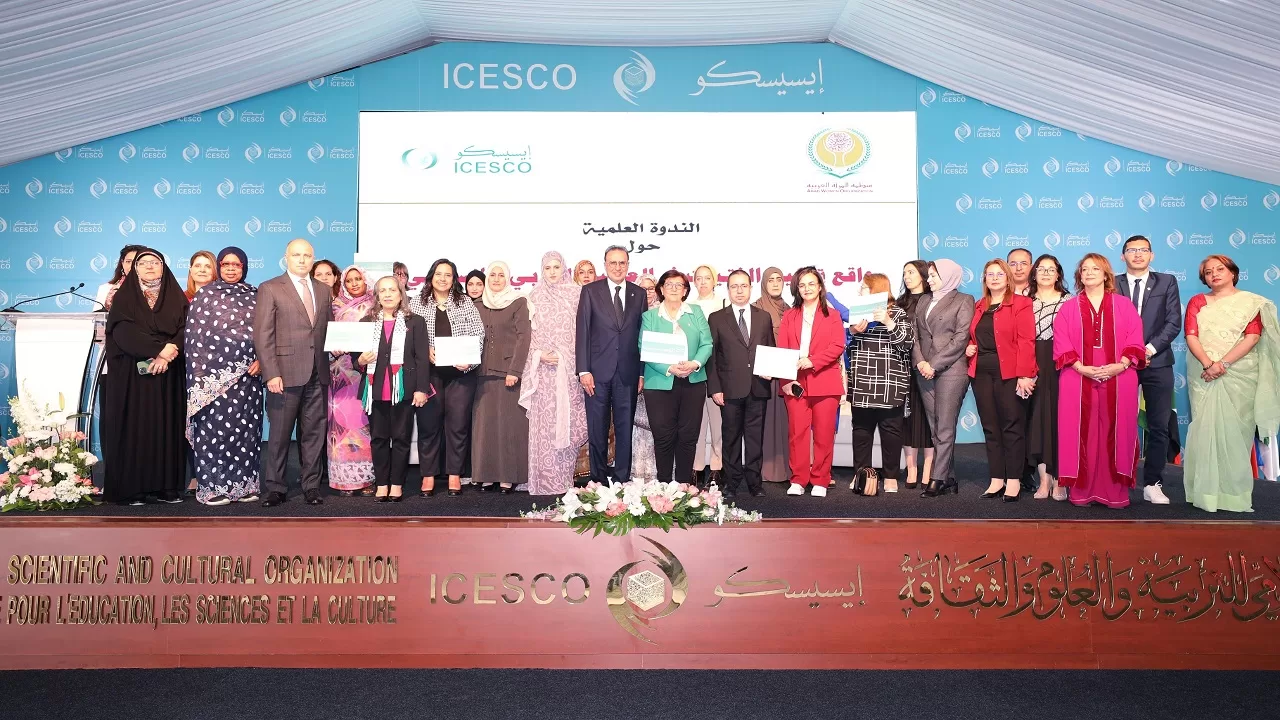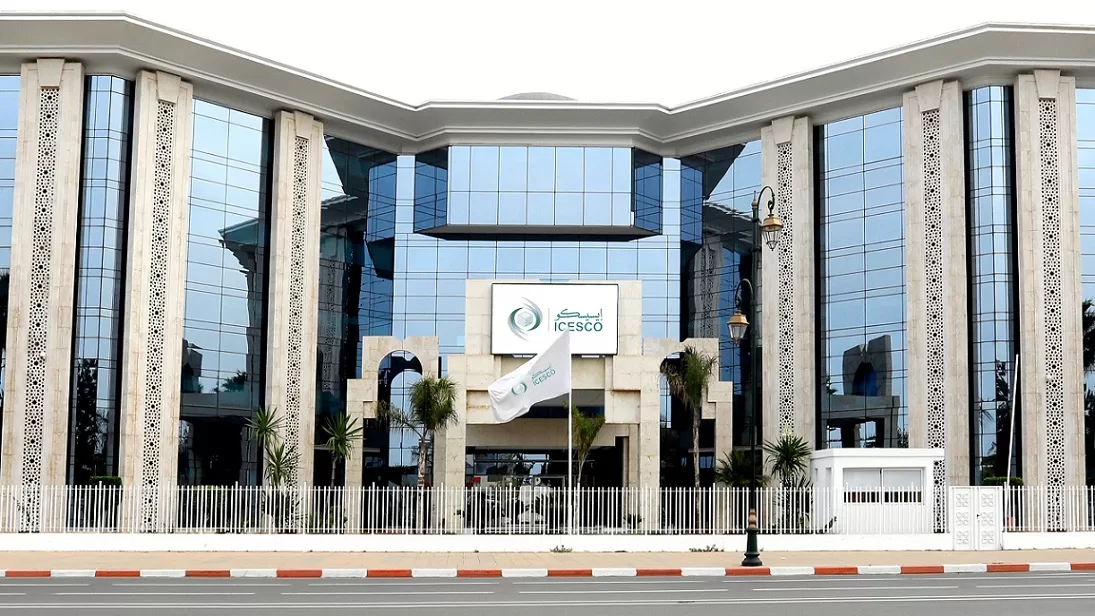
Meeting of International Organizations: ALECSO, ISESCO and ABEGS concludes its proceedings in Tunis

16 October 2019
The Fifth Meeting of International Organizations: ALECSO, ISESCO and ABEGS concluded its proceedings today in Tunis, Republic of Tunisia. The meeting kicked off yesterday under the theme “From Cooperation to Partnership”, with the participation of Dr. Salim M. AlMalik, Director General of the Islamic Educational, Scientific and Cultural Organization (ISESCO); Dr. Ali bin Abdul Khaliq Al-Karni, Director General of the Arab Bureau of Education for the Gulf States (ABEGS); and Dr. Mohamed Walad Amor, Director General of the Arab League Educational, Cultural and Scientific Organization (ALECSO).
At the close of today’s session, the parties adopted the final report of the meeting, which included changing the name of this event to “Cooperation Meeting of ALECSO, ISESCO and ABEGS” starting from the next meeting. The final report also stated that, given its being a periodic meeting, the sixth session will be held in Riyadh, in October 2020, while welcoming the offer of ABEGS to host this meeting at its headquarters in Riyadh, Kingdom of Saudi Arabia.
The closing session reviewed ways to foster partnership among the three organizations in concrete field actions for the benefit of Member States, in conformity with the new forward-looking vision of the three organizations’ respective directors general. In this connection two papers were presented, namely “From Cooperation to Partnership”, by the expert Dr. Abdul-Salam Al-Jufi, and “Ways and Mechanisms to Foster Partnership among International Organizations and National Commissions”, by Mr. Mohamed Ghemari, Director of the Secretariat of the Executive Council, General Conference and Specialized Ministerial Conferences at ISESCO.
The two papers underscored that the three organizations are facing various common challenges including illiteracy, rapid technical advancement, new trends in education, and need to give more attention to programmes of publicizing Arab Islamic identity and its position within human identity; and stated that adequate tackling of such challenges requires joining the three organizations’ efforts as part of effective partnership.
In addition, the two papers proposed drafting a joint strategic vision to achieve coordination, complementarity and benefiting from cooperation with international organizations; and agreeing on implementing joint programmes and projects and determining mechanisms for following up, assessing and publicizing them. The two papers also called for promoting the existing cooperation between the three organizations and National Commissions, especially at the level of planning and implementing programmes for the benefit of Member States; and developing such partnership in terms of programmes as well as at the technical and financial levels.





